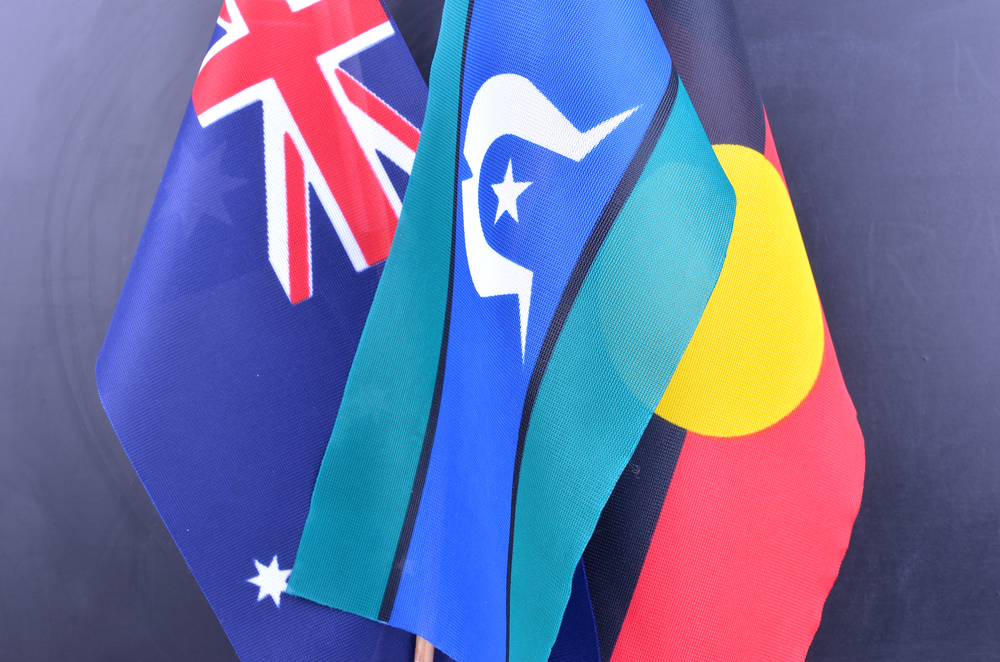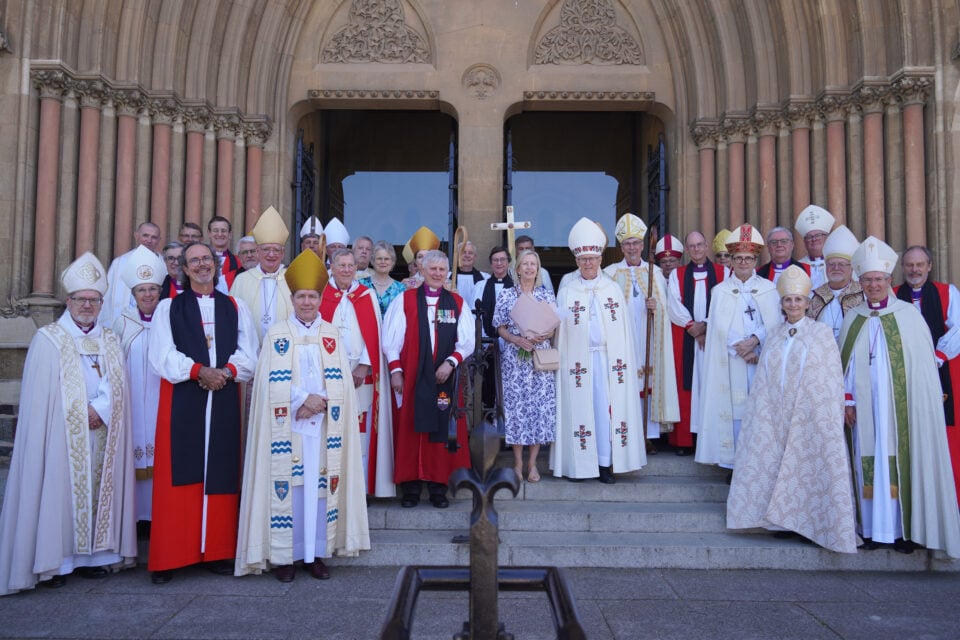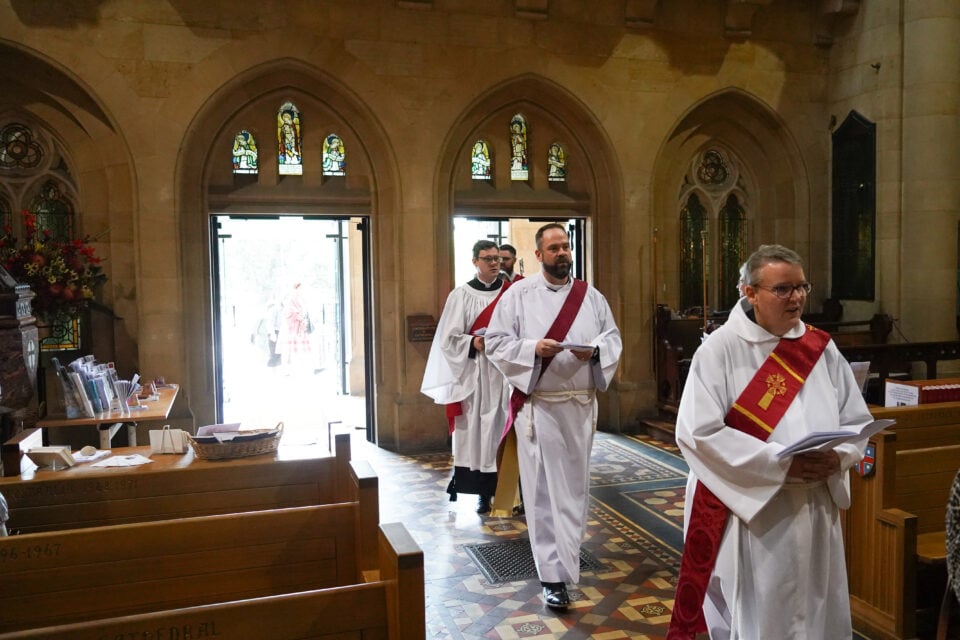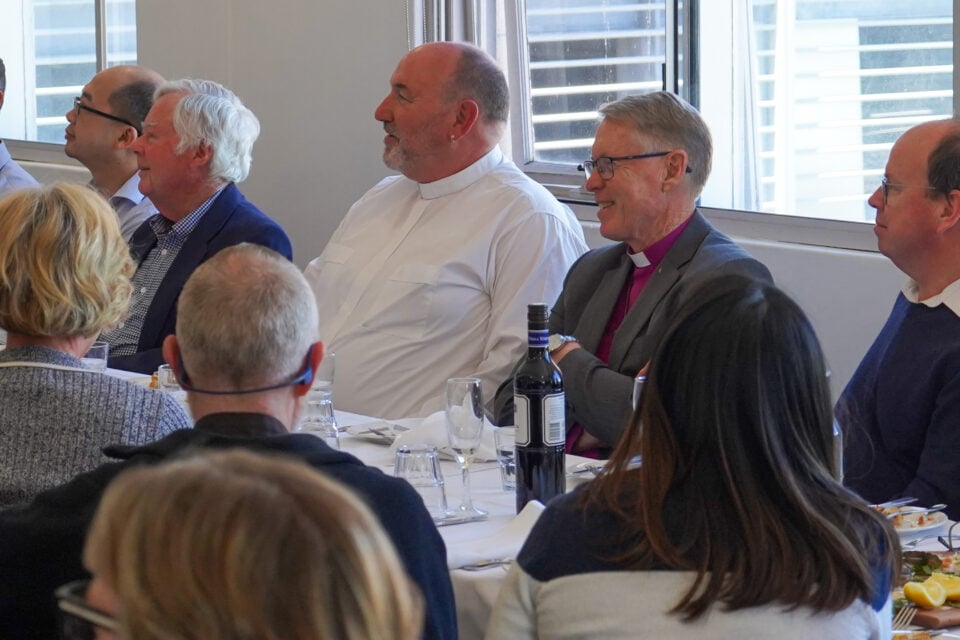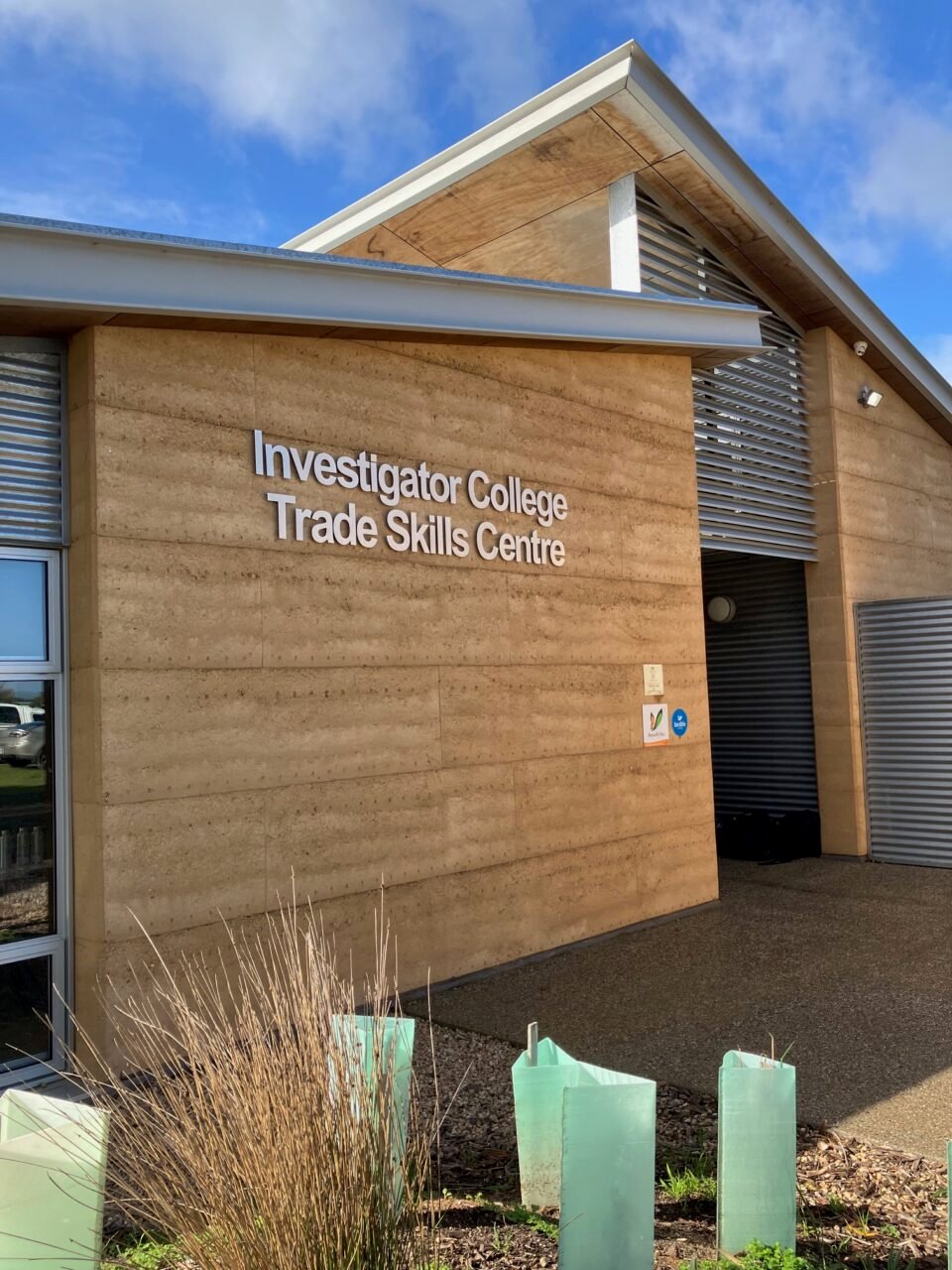An unprecedented coalition of diverse peak religious organisations has gathered to call for bipartisan action to hold a referendum on a First Nations voice.
Representatives of the major religious groups of Australia, including the Anglican National Aboriginal Bishop and Dean of St Peter’s Cathedral, Bishop Chris McLeod, today joined with highly acclaimed Australian filmmaker Rachel Perkins of the Arrernte and Kalkadoon Nations, at the Cutaway at Barangaroo in Sydney, as part of a live televised celebration to launch a Joint Resolution in support of a constitutionally guaranteed First Nations voice.
Held amidst the contemporary artwork of the 23rd Biennale of Sydney, titled rīvus, the event included a musical performance by Indigenous artist, Eric Avery, and marks the first time such diverse faith communities have taken a united stand in support of the Uluru Statement from the Heart and a First Nations voice guaranteed by the Constitution.

The Joint Resolution calls for ‘bipartisan action’ to hold a referendum on a First Nations voice, endorsing the proposal as “necessary, right, and reasonable”. “There can be no more delay. Our country has waited too long for justice”, it declares.
The event marks exactly five years since more than 250 Aboriginal and Torres Strait Islander leaders gathered at Uluru to call for substantive recognition via a constitutionally guaranteed voice in their own affairs. It is also 55 years since more than 90% of Australians voted ‘yes’ in a referendum to count Indigenous Australians as part of the voting population, on 27 May 1967.
In her keynote speech, Rachel Perkins, daughter of Aboriginal activist Charlie Perkins, applauded the religious groups that had “transcended differences of belief, culture and tradition to agree on this one true thing: that a constitutional voice for Aboriginal and Torres Strait Islander people is ‘necessary, right, and reasonable’.”
“That you have united in support of this reform speaks to your moral conviction about the justice of this proposal, your empathy and generosity of spirit, and to the ability of the Uluru Statement to bring Australians together.”
She urged “us all to follow the example these religious organisations have set: let us put our differences aside and work together towards a successful referendum”, emphasising that “this issue transcends predictable divides, and it deserves bipartisan support”. She asked the religious organisations to “deliver this message to our politicians, and to pray for bipartisan co-operation on a voice referendum”.
Ms Perkins said a constitutionally guaranteed First Nations voice would be a ‘practical solution’ aimed at delivering practical results that improve outcomes for Indigenous communities. She said this would be a “constitutional promise that Indigenous people will always be heard” in laws and policies made about Indigenous affairs. It would mean that, “though our advice might not always be heeded, we will always have a place at the table in this, our own country.”
She said these aspirations of Indigenous Australians are not new, and that many before had pressed for decades for the kinds of reforms embodied in the Uluru Statement, including her late father. “So like him, do we have to die waiting for our country to come to terms with its ancient past – the moral question of its colonial foundations and a more harmonious future?”
The Joint Resolution demonstrates growing community consensus across differences of belief and culture, supporting bipartisan action on a First Nations voice referendum. It was signed by representatives of the Anglican Church of Australia, the Australian Catholic Bishops Conference, the Australian National Imams Council, the Australian Sangha Association, the Executive Council of Australian Jewry, the Hindu Council of Australia, the National Council of Churches in Australia, the National Sikh Council of Australia, and the Uniting Church in Australia Assembly.
The celebration was the inaugural event of the Radical Centre Reform Lab at Macquarie Law School, directed by constitutional lawyer, Dr Shireen Morris, and established with generous support of Foundation Donors, Henry and Marcia Pinskier. The event was organised by the Reform Lab in partnership with Cape York Institute and Uphold & Recognise.
